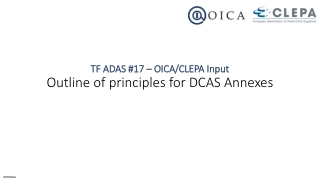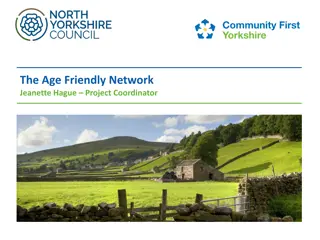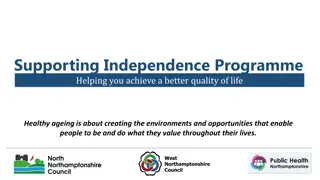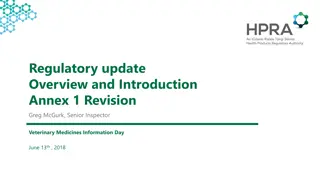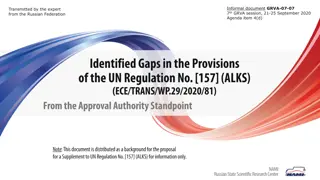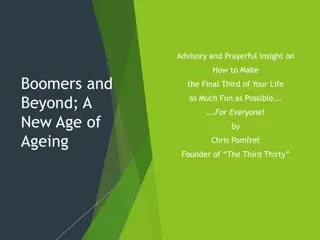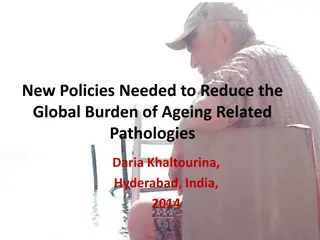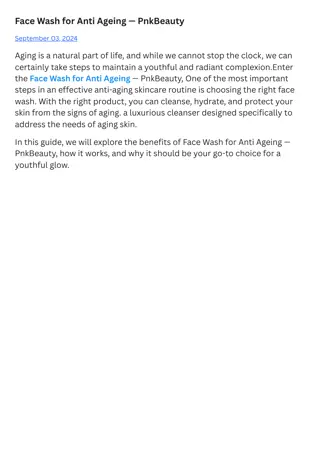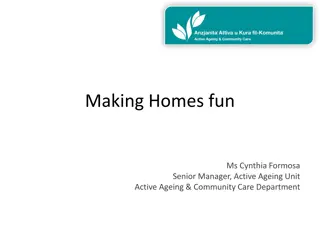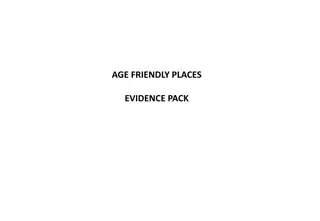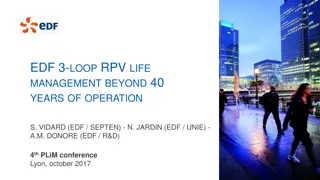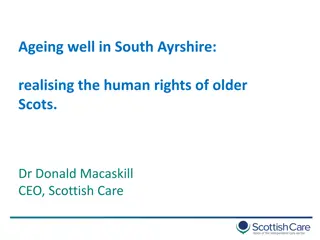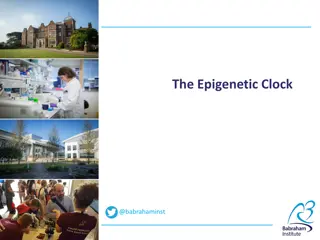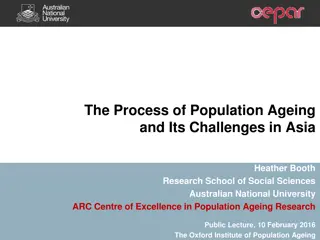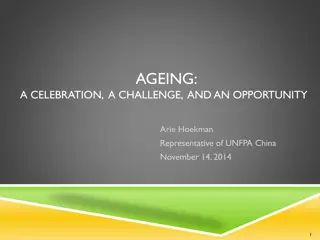
Insights on Age Disaggregated Data and Key Messages for Sustainable Development Goals
Gain valuable insights on age disaggregated data, assessment of evidence, key messages for SDGs, and understanding the aging process. Explore ways to prioritize indicators and address important issues for older populations.
Download Presentation

Please find below an Image/Link to download the presentation.
The content on the website is provided AS IS for your information and personal use only. It may not be sold, licensed, or shared on other websites without obtaining consent from the author. If you encounter any issues during the download, it is possible that the publisher has removed the file from their server.
You are allowed to download the files provided on this website for personal or commercial use, subject to the condition that they are used lawfully. All files are the property of their respective owners.
The content on the website is provided AS IS for your information and personal use only. It may not be sold, licensed, or shared on other websites without obtaining consent from the author.
E N D
Presentation Transcript
GROUP A 1stmeeting of the Titchfield City Group on ageing and age- disaggregated data Chichester, 26thJune 2018
Focus Assessment of current evidence, including recommendations and barriers (such as age-caps). This will also include the development of a tool to form the baseline for this assessment. Horizon scanning / future needs of data users (including how well do we anticipate the current evidence meets future needs?)
Key messages SDG framework to provide guidance on what indicators we should prioritise for age disaggregation (IAEG / UNDESA/ UNDP/ UNFPA) Countries are not all starting on a level playing field, so we need to come up with steps to make the work an the process inclusive and collaborative (RELEVAce- Implementing The diversity between countries involved in terms of access to tools and available resources should be acknowledged. Offices with tools should assist those that don t (sharing experiences; Learning from past experiences to be prepared for the future. Stakeholders to be already busy to be consulted Humanitarian disaster and older people what data? Good practice? best to get it? OCHA UN Office
What is data? Its not just numbers, but its meta data SDG framework; open up the indicators list; and prioritise which indicators must be disaggregated by age (harmonised/ standardised) (initial work on indicators by UNDESA) Important issues concerning older people - Health, Income, and Enabling Environments (and employment and lifelong learning) We need to understand ageing process, what is pertinent for the young is also for the old (of future generations): Ageing is a dynamic process and is about whole society and including persons of all ages (not to come at the exclusion of the older persons). An emphasis on the Life Course approach and leads us to consider the different stages of a life where policies of different nature is of significance (with a continued emphasis on older persons) Do we have any existing instruments (such as the ICF) which could provide guidance (indicators of wellbeing of older generation; active ageing and healthy ageing)
Sources of information The first step is to have a comprehensive understanding of the surveys and other sources of ageing related disaggregated data that currently exists With this background we can perform a detailed assessment of what can be drawn from these sources e.g. what can we actually get data beyond age 60? How credible are the age groups and what level of granularity do we need in terms of age groups? Each NSO - A FOCAL PERSON FOR AGEING STATISTICS
Disaggregation with respect to age Determine what kind of disaggregation is possible from existing data e.g. for all ages particularly older ages, as well as other relevant attributes for older persons (income and disability) Sample size for each disaggregation also needs to be considered to gauge the credibility of data Using existing official data, we need good examples of actionable data where we can triangulate and incentivise other countries to follow our lead
Future needs of data users horizon scanning There may be a need for specialised training on how to collect data on older persons e.g. expert enumerators on persons living with dementia for future needs Other issues policies for ageing populations are as much about data as they are about attitudes (ageism; mindset change; empowerment of older population) Need to talk about participation of older people, rather than pre-supposing their purpose (e.g resources). Need to be open to new and novel data collection methods and resources e.g. admin data

